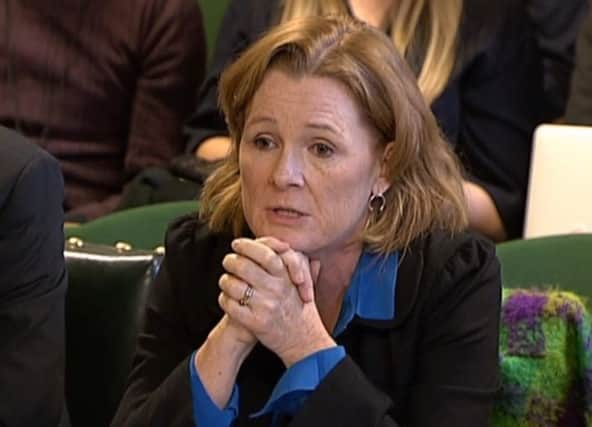'˜Lying' BBC saved £10m a year on presenters' National Insurance, MPs told


Around 100 on-air personalities are thought to be facing investigations over their use of such companies and some are reported to be considering legal action against the corporation.
Christa Ackroyd, the former presenter of Look North in Yorkshire, was among the first to be the subject of a case brought by HMRC. She told The Yorkshire Post earlier this month that she had suffered “five years of hell” after being dropped in the wake of the investigation. She lost a tribunal judgement but was cleared of any wrongdoing after the judge ruled she had entered into the arrangement in good faith.
Advertisement
Hide AdAdvertisement
Hide AdYesterday, the journalist Paul Lewis, presenter of Radio 4’s Money Box, told the Commons Culture Committee that the arrangements could have saved the BBC 30 per cent of the cost of employing presenters, some of whom lost rights to sick pay, maternity leave and pensions.
Around £10m was saved annually on employer’s National Insurance contributions, he estimated.
The BBC – which declined to give evidence – could face claims for compensation running into tens of millions over loss of pension rights, the committee heard.
Mr Lewis, who refused to set up his own personal company, told MPs that relatively low-paid presenters on local radio and on Radios 3 and 4 were treated as “disposable” by the BBC.
Advertisement
Hide AdAdvertisement
Hide Ad“This isn’t a story of well-paid presenters trading through companies to avoid tax,” he said.
“This is the story of the BBC forcing hundreds of presenters to form companies and treat them as freelancers because that gave the BBC flexibility and protected licence fee payers.”
Kirsty Lang, presenter of Radio 4’s Front Row, said she gave up a staff post when asked by the BBC to form a company, despite fears about losing rights to sick pay.
She said “all my worst fears came true” after her stepdaughter died and she found herself unable to get bereavement leave, and was then diagnosed with cancer and had to work through surgery, radiotherapy and chemotherapy treatment.
Advertisement
Hide AdAdvertisement
Hide Ad“I entered into this whole arrangement in good faith. I feel like I have been hung out to dry,” Ms Lang said.
Disc jockey Liz Kershaw suggested the BBC may have lied by informing her and other presenters that HMRC had backed the arrangements. She blamed the situation on a secretive and “oligarchical” management style.
Committee chairman Damian Collins told the presenters: “I think a lot of people will be quite shocked by what you have said, and feel this is well below the standards we expect of the BBC.”
The corporation announced on Monday that it would facilitate an “independent process” under which presenters could ask for a review of their cases.
Advertisement
Hide AdAdvertisement
Hide AdBut it was challenged to “hold its hands up” over what an industry observer called “one big BBC fiasco”.
Dave Chaplin, founder of Contractor Calculator, a website for freelances, said: “I have a lot of sympathy for all the BBC presenters that have been impacted because they were simply following the BBC’s trusted direction.
“The BBC needs to step up, hold up its hands and help to put things right.”